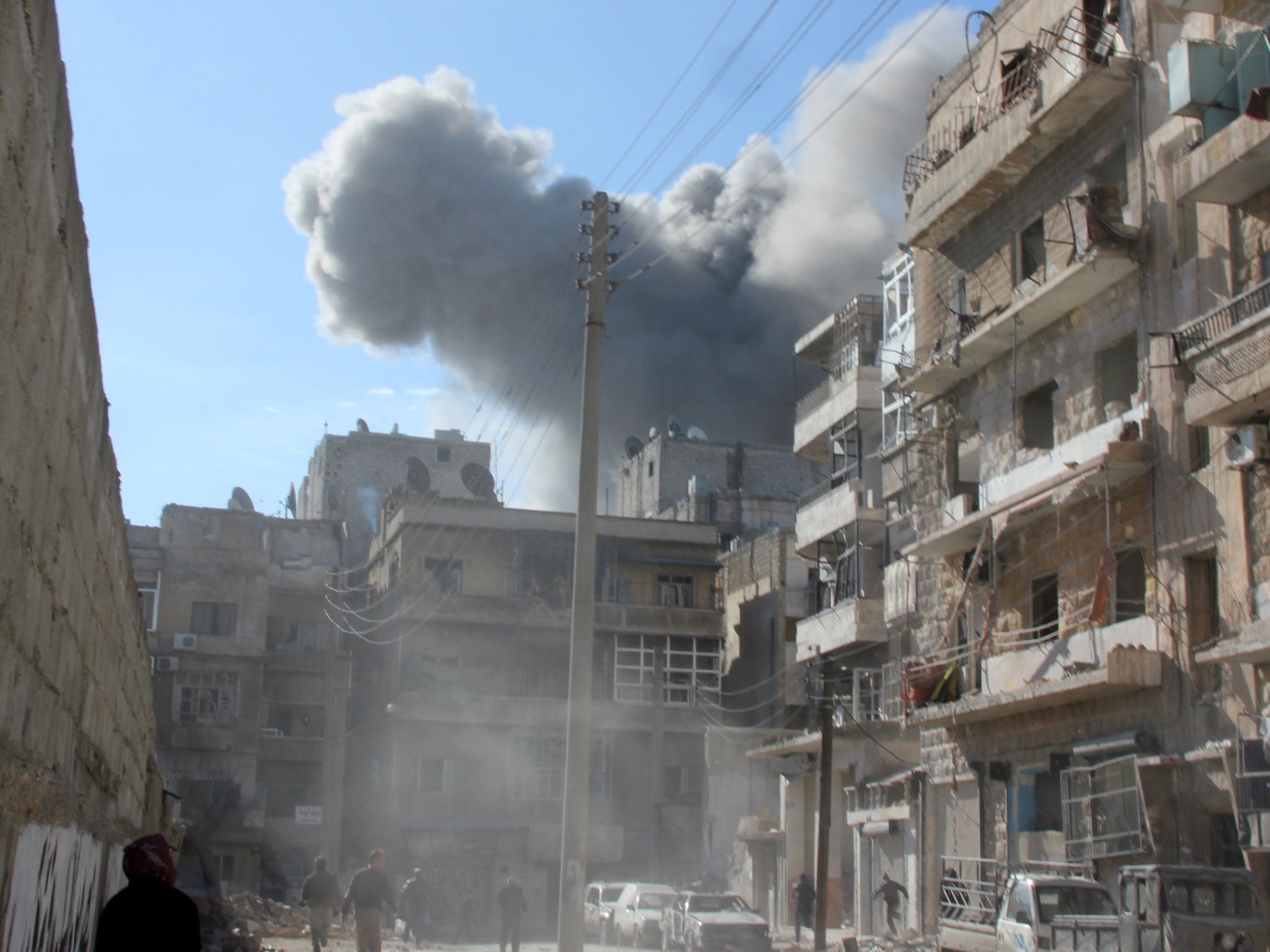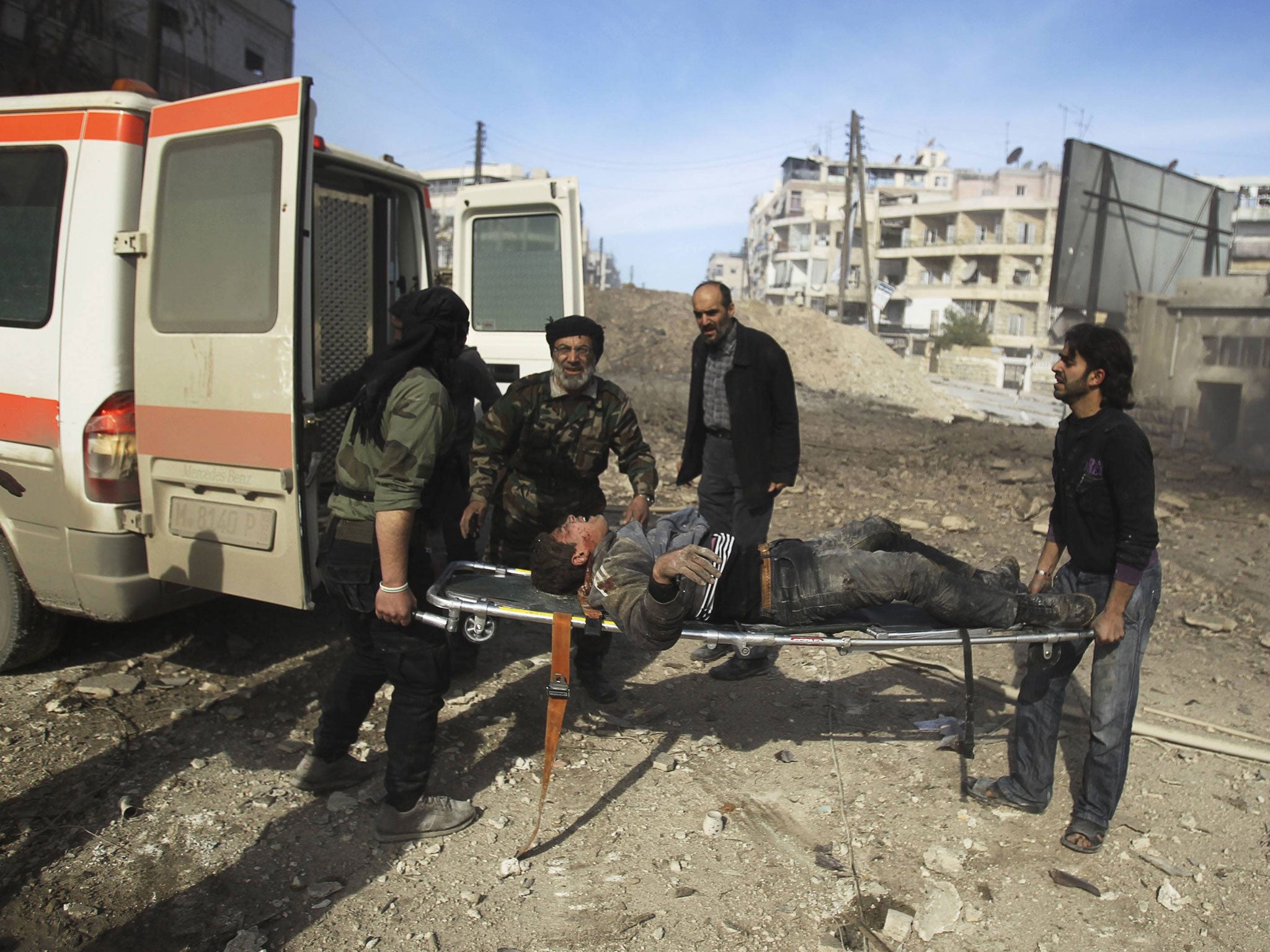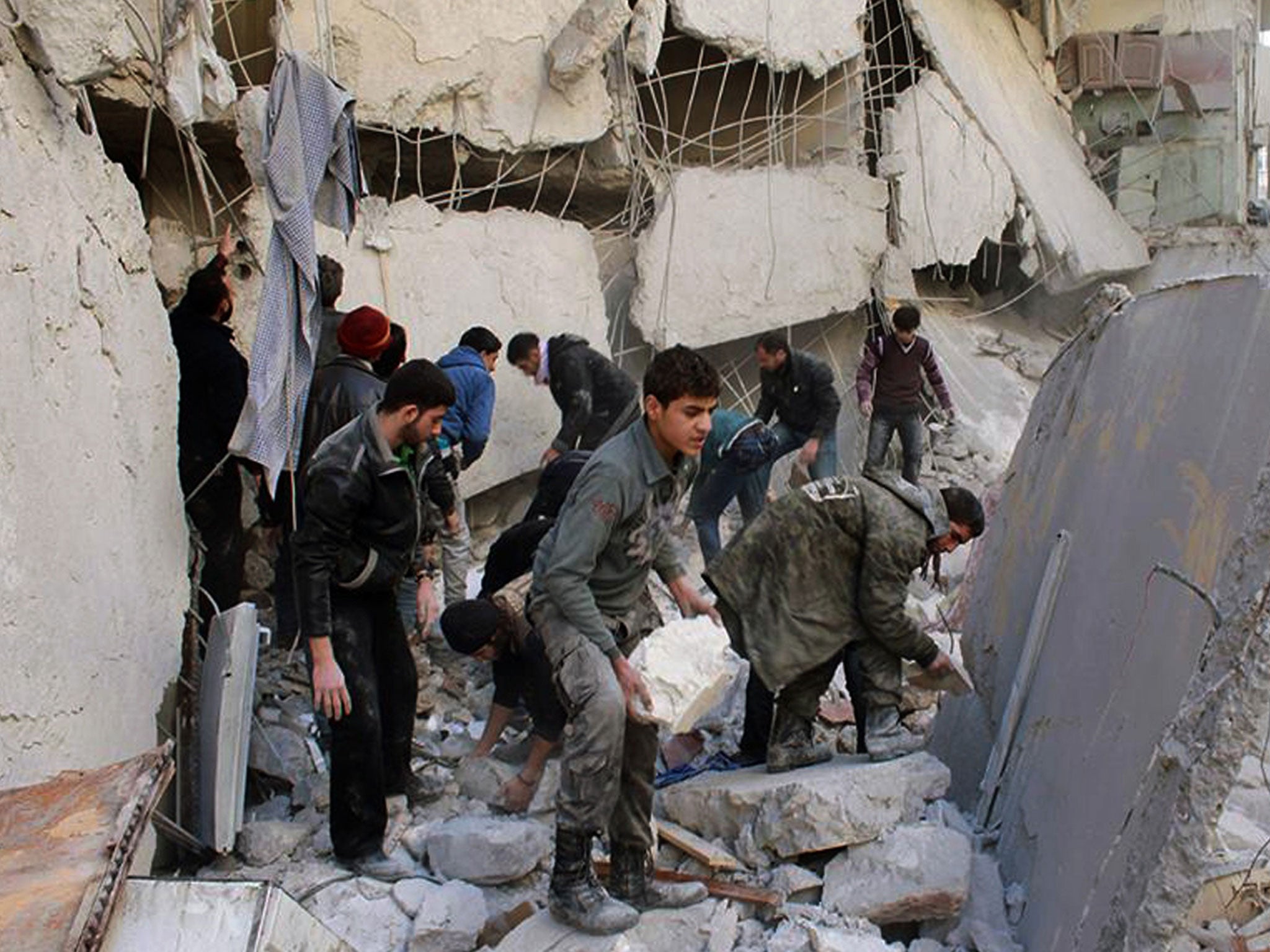Geneva II negotiations: Gravediggers will stay busy in Syria as peace talks end in failure
As talks in Geneva draw to a close, Patrick Cockburn, writing from Damascus, argues that peace is a distant hope

Your support helps us to tell the story
From reproductive rights to climate change to Big Tech, The Independent is on the ground when the story is developing. Whether it's investigating the financials of Elon Musk's pro-Trump PAC or producing our latest documentary, 'The A Word', which shines a light on the American women fighting for reproductive rights, we know how important it is to parse out the facts from the messaging.
At such a critical moment in US history, we need reporters on the ground. Your donation allows us to keep sending journalists to speak to both sides of the story.
The Independent is trusted by Americans across the entire political spectrum. And unlike many other quality news outlets, we choose not to lock Americans out of our reporting and analysis with paywalls. We believe quality journalism should be available to everyone, paid for by those who can afford it.
Your support makes all the difference.The first session of the Geneva II peace negotiations, which ended yesterday, were more of a failure than they look. It was the sort of international conference of which the sponsors say that useful spadework was done and sceptics respond that the only spades in evidence were those of the grave diggers: some 1,870 Syrians were killed during the week of the peace talks.
For negotiations to have any hope of success they must reflect the balance of power on the ground in Syria. It is all very well for US Secretary of State John Kerry to state that the meeting would be entirely about political transition in Syria during which President Bashar al-Assad should leave power. But why should Mr Assad do anything of the sort when his forces hold 13 out 14 Syrian provincial capitals and are slowly retaking districts in Damascus, Homs and Aleppo captured by rebels in 2012?
If Mr Kerry is sincere in believing that peace can only come if Mr Assad goes, then he is in practice assuming a radical change in the present balance of forces in Syria which could only happen through a long war or full-scale foreign military intervention. The approach of the US and its European allies so far dooms Syrians to devastation and a repeat performance of the Lebanese civil war which lasted fifteen years between 1975 and 1990.
It is not that Mr Assad’s forces are likely to win a decisive victory. They may be inching their way forward but the rebels still hold great swathes of territory in the north and east of the country. The Syrian Army is short of troops, which must explain why it is blockading rather than recapturing small opposition enclaves in Damascus, Homs and Aleppo. Overall, there is a military stalemate that is unlikely to be broken.
The opposition is in a worse state than ever. It is not only divided but since 3 January is fighting its own civil war within the civil war. The ferocious Islamic State of Iraq and the Levant (Isis) holds territory to the east and their opponents to the west of Aleppo, while they battle for control of supply lines to Turkey to the north. No outright winner is emerging. The only chance for the opposition to change their military fortunes would be a very long war in which they were fully backed by Saudi Arabia, the Gulf monarchies and Turkey.
These states might calculate that since the majority in Syria is Sunni Arab they will eventually win. But keep in mind that the supposedly “moderate” wing of the Syrian opposition is currently fighting alongside Jabhat al-Nusra, the official Syrian representative of al-Qa’ida. The Alawi, Christians, Druze and Shia – possibly together with the Sunni Kurds – know there is no place for minorities in a Syria run by the present opposition. The Syrian Army may have difficulty getting enough recruits, but in the Christian area where I am staying in Damascus, the young men volunteer to fight Jabhat al-Nusra, attacking their co-religionists in the mountains west of the capital.

So-called confidence-building measures like food being distributed to besieged places like the Old City of Homs and Yarmouk Camp in Damascus are good in themselves. Hungry people get to eat. Sick children live who would have died. But it is doubtful how much confidence is really created between two sides that hate and distrust each other so much. The crimes are not all on one side. The opposition is calling loudly for food and medicine for 2,500 starving people in the Old City of Homs besieged by the government, but it keeps quiet about the rebels’ own siege of 45,000 Shia in the towns of Zahraa and Nubl outside Aleppo.
Any attempt at transitional government at this stage in the conflict will not work because power cannot be shared by people who want to kill each other. The only way that power can really be shared at this moment is on a geographical basis whereby each side holds the territory it currently controls under a ceasefire agreement. Given the fragmentation of the rebels this would probably mean a series of local ceasefires in different places.

The days leading up to and during the peace talks were marked by accusations of war crimes against the Syrian government: there were the pictures of tortured and starved prisoners and a report on the demolition of whole neighbourhoods by government forces. But it would be a mistake for foreign observers to imagine that the unpopularity of the Syrian government translates into support for the rebels. As one Syrian in Damascus put it: “These days the people hate them both equally for having ruined our country and are desperate for the war to end.”
Join our commenting forum
Join thought-provoking conversations, follow other Independent readers and see their replies
Comments